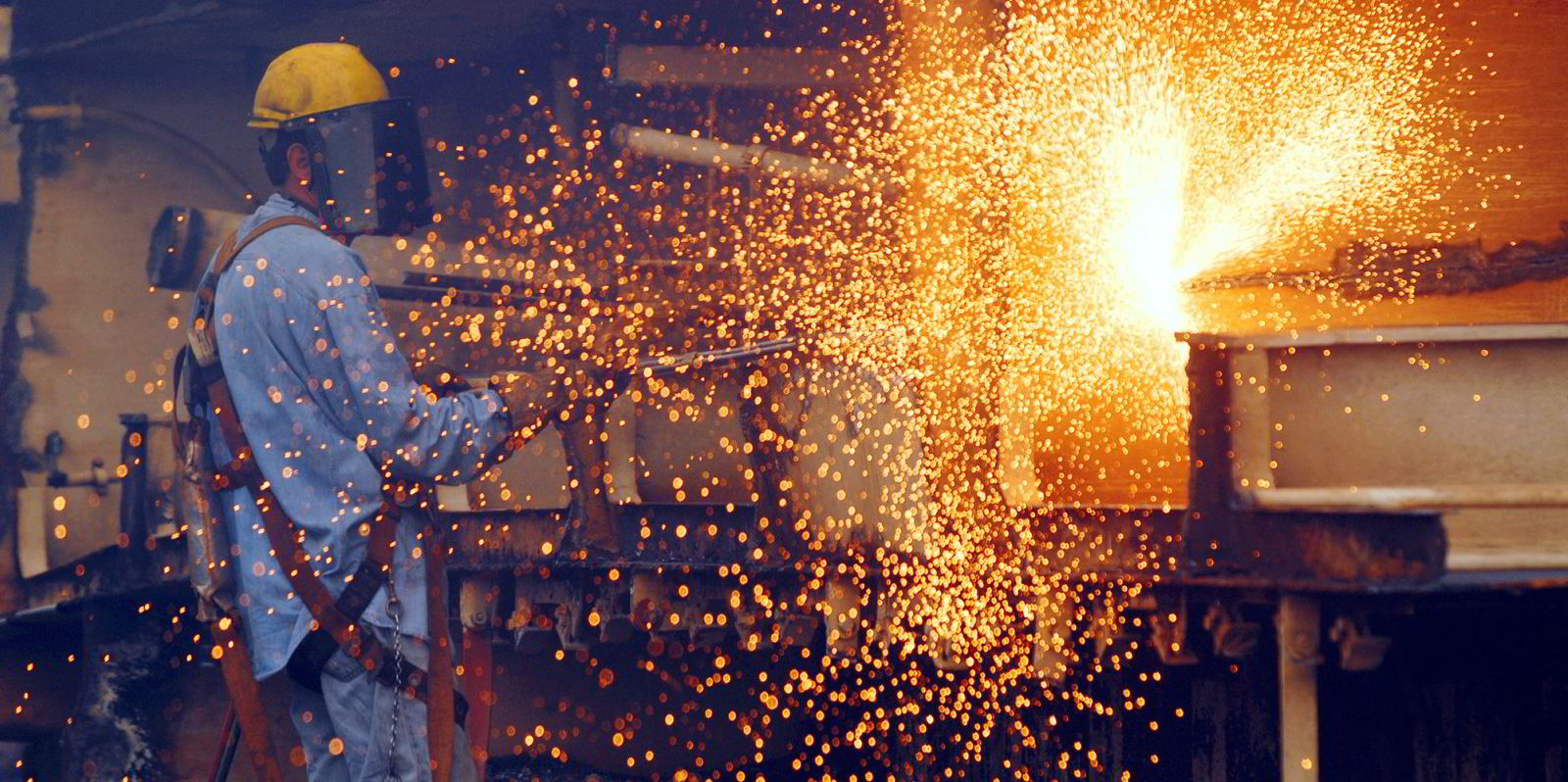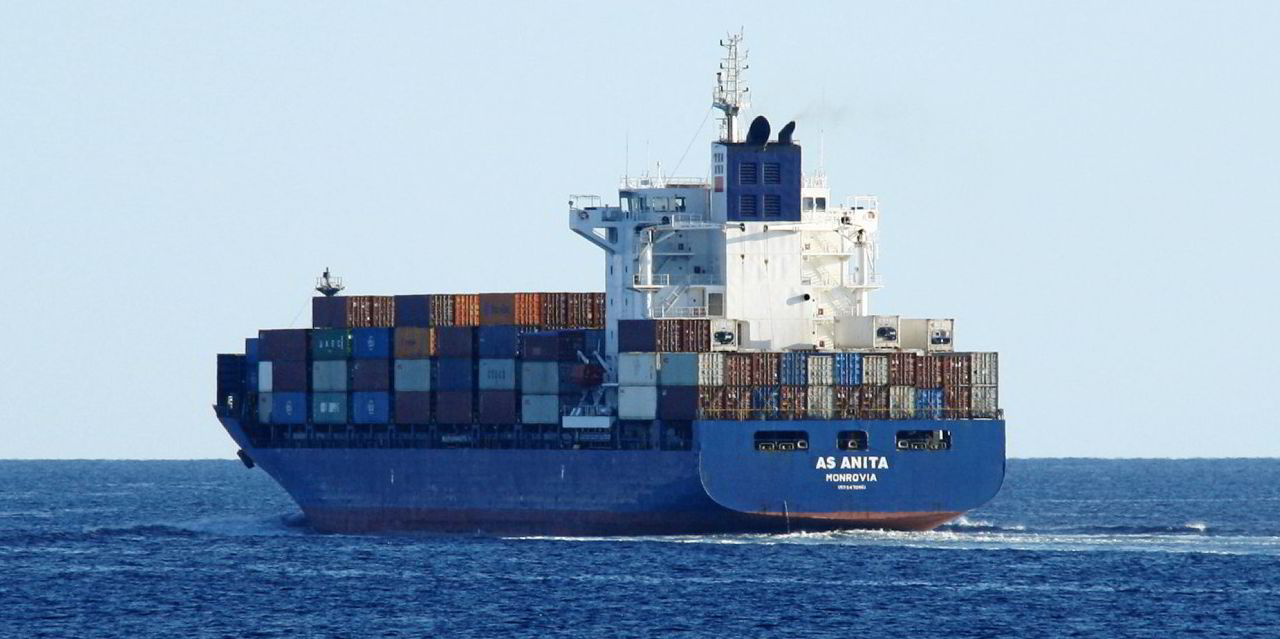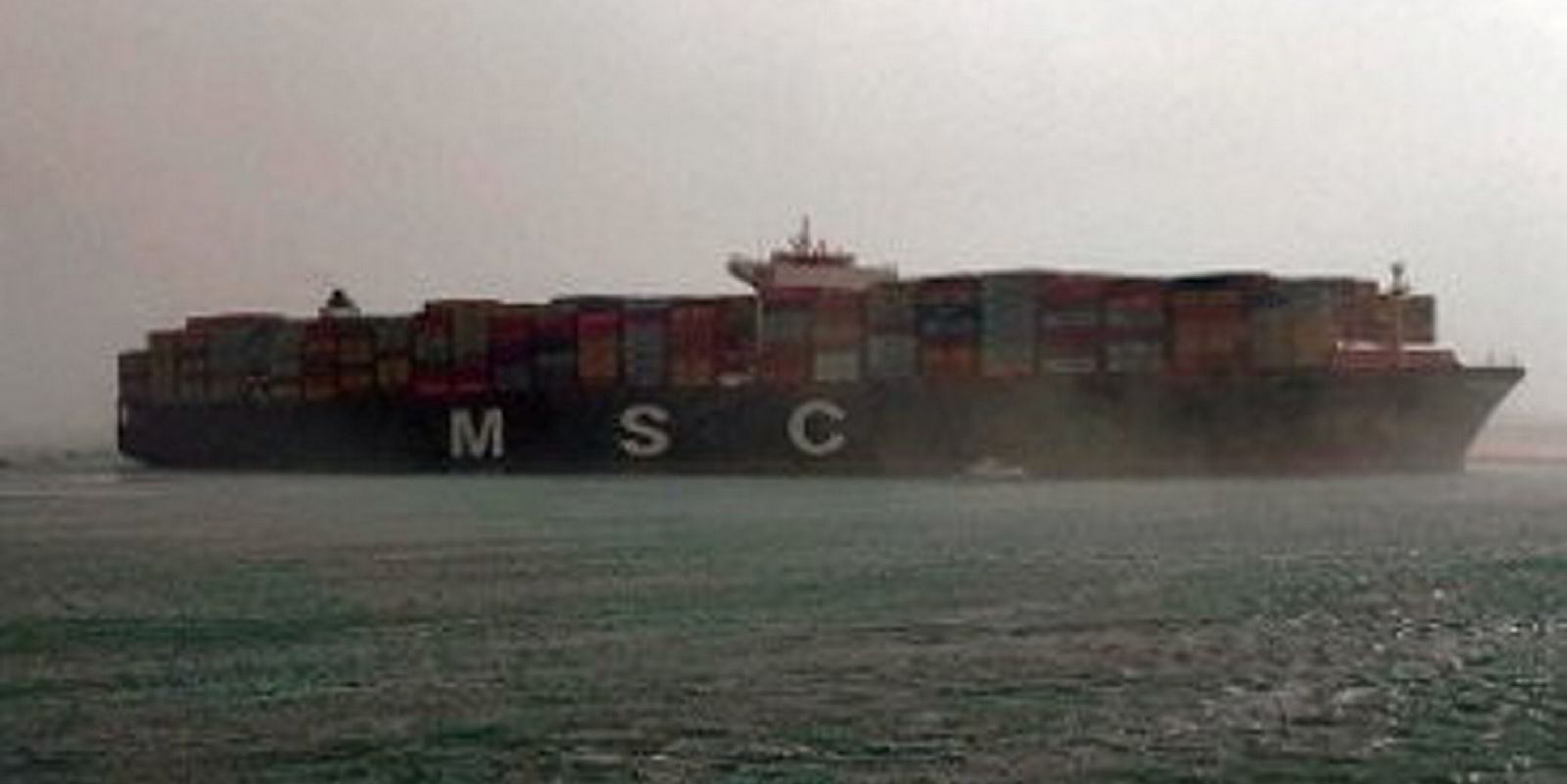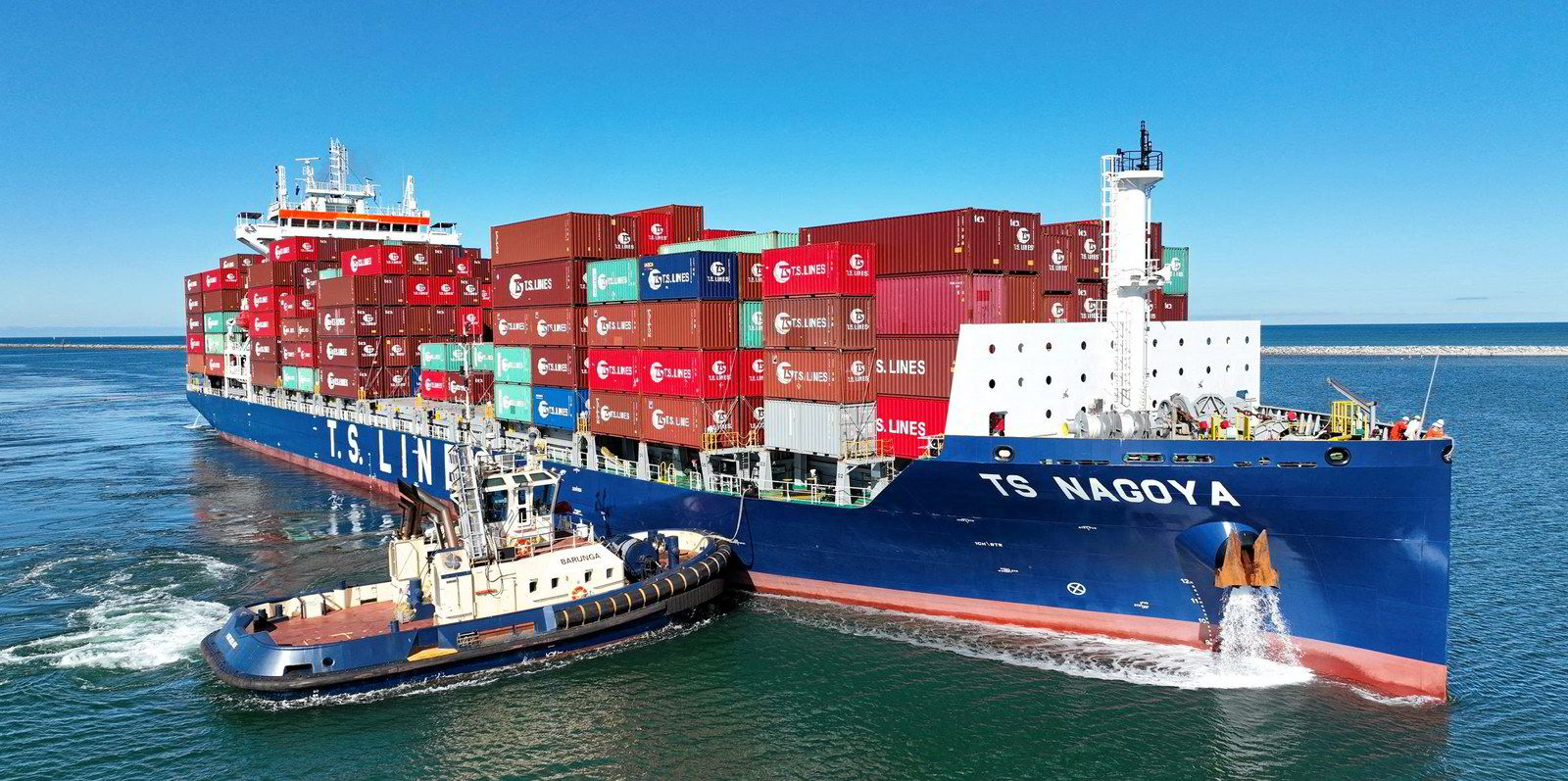German shipbroker Hanse Bereederung believes the floodgates will soon open in the container ship scrapping market as older units become obsolete.
A cull of veteran vessels has been delayed by record rates and demand caused by a locked-down global population spending money on goods, not services.
But this trend has now reversed.
Alex Karydis, Hanse Bereederung director of chartering and sale and purchase, said: “We see the charterers are adopting a different strategy: more efficient ships with more cargo.
“What will happen to all those existing ships?” the broker asked.
He believes many of them are now “useless” to the big container lines.
“We haven’t seen scrapping for a long time, because of speculation, or because it’s not the right timing, or the banks would not do it because the scrap yards were not paying very well,” Karydis told TradeWinds.
“Then Covid happened and you needed everything that was floating,” he added.
The broker explained that oversupply was a problem even before the pandemic.
“My prediction is that in the coming months we will see a tsunami of scrapping,” he said.
The ageing fleet is also a factor here.
A dangerous age
Karydis calculates that between 20% and 25% of feeder ships up to feedermax size are above 20 years of age, and the same is true for panamaxes up to post-panamaxes.
“20-plus is a very dangerous age for a vessel, because they will cause a lot of trouble,” the broker said.
“They are the darlings of port state control. When they are calling at different ports, the port authorities are all the time going on board saying this thing is missing, or you should have changed this spare part. It causes delays and the charterers cannot afford that,” he added.
“So these vessels have no future and they will be scrapped,” Karydis argues. “I predict there will be a huge surge in activity.”
Scrap prices are in excess of $500 per ldt in Bangladesh, Pakistan and India now.
But he predicts this price will halve if there is congestion outside ship breaking yards to much the same degree as seen off ports such as Los Angeles at the Covid peak.
This is what happens at the end of every cycle, Karydis said.
Finding a balance
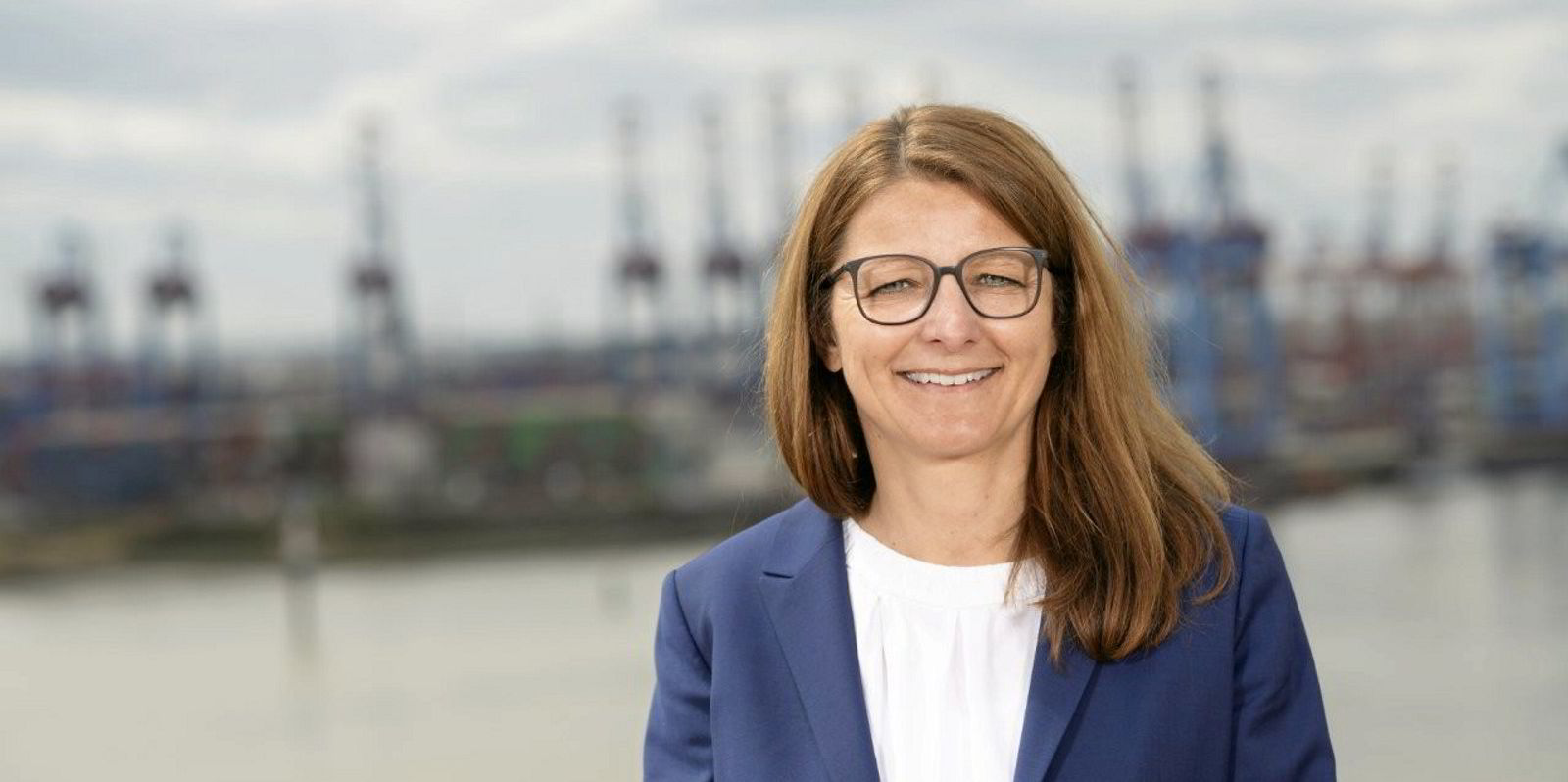
Hanse Bereederung managing director of operations Claudia Paschkewitz added: “With all the newbuildings coming in, scrapping of old tonnage is a normal process to find the balance. But we have seen during the last few years that no one can predict what will happen. It will be interesting.”
Container freight and charter markets are demonstrably down from the pandemic peak.
But Karydis said: “It’s still not that bad. I think the liner companies will be profitable this year, albeit modestly.
“Contract rates are substantially higher than spot rates; this is going to be a difficult mathematical exercise for the charterers to sort,” he added.
And lines’ profit will not be “anywhere near what they enjoyed in 2021/22”, Karydis said.
Some lines are dealing with vessels chartered in from tonnage providers at high rates.
Headache for charterers
“It’s a problem, it’s a headache, some charterers have renegotiated some charters they fixed two years ago, which were very high,” the broker said.
“Let’s not forget the charterers amassed great profits in the last years. I don’t think this is painful. Of course, right now they are burning their fat, it’s not unlimited,” he added.
And the broker said some charterers “don’t really care because the economies of scale are immense, so it makes sense”.
Even with the orderbook for post-panamax ships and above at close to 40% of the existing fleet, Karydis does not see charter rates slipping back below pre-pandemic levels.
“If it stabilises at the current level, everyone will be happy,” he said.
New orders have tailed off and there may be some delays to those ships already contracted, the broker believes.
“There is a fear among many in the market that orders will be postponed, because of the uncertainty of the current macroeconomic environment and how the market is at the moment,” Karydis said.
“They will postpone, hopefully not cancel, because this will create huge chaos at yards,” he added.
